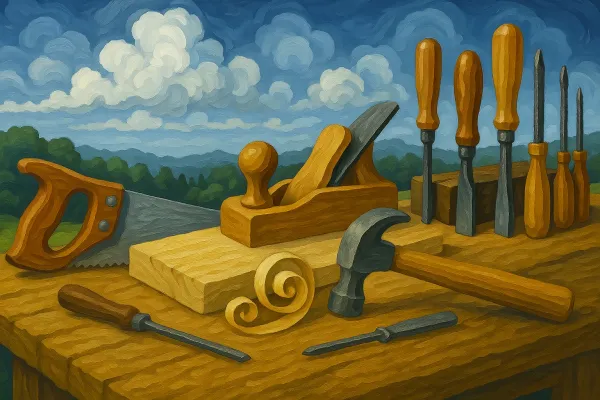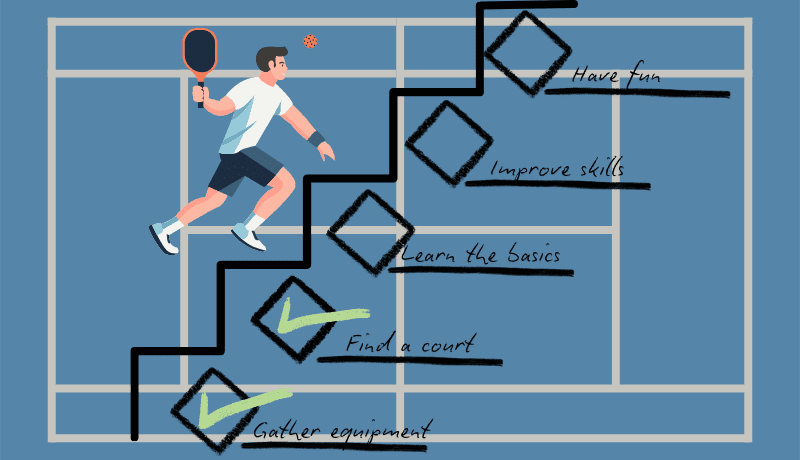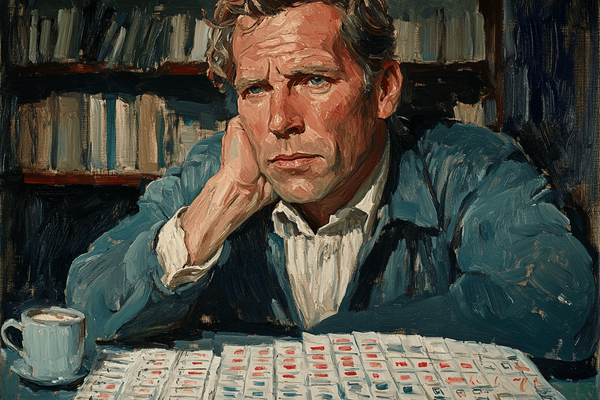So Real List. The power of common tools
It seems like paper is the previous century technology. Denis thinks that it is not and has the well-balanced paper-based personal productivity system.

In the last couple of decades, we have become accustomed to associating progress of humanity with an increase in the capabilities of our technologies. As long as we live in a world of working Moore’s law [1], which promises us a doubling of computing power every two years, it is quite natural to do so. Even if we write some unproductive nonsense in our programs, it will soon become less noticeable.
Let’s take a closer look at technological progress. Mostly it consists of accelerating the satisfaction of existing needs. That’s why we notice it in increasingly smarter processors. But there is another approach which is actively used in lean manufacturing [2]. In simple words, the path to satisfying a need consists of useful and not useful activities. It’s possible to go the processors’ way and do both faster. As an alternative, you can consistently remove not useful activities from the needs satisfying paths.
Some time ago, I was struck by an excerpt from the book “Lean Manufacturing” [3]. It describes a transformation of the production process. The quality of the products produced has not fallen, and the complexity of production has been significantly reduced. Reduced so much that it became no longer necessary to use complex software:
The in-plant MRP system that had been sending orders to every machine — but which never quite worked right so that expediting was always necessary to keep production going — was no longer needed.
So today’s guest of the “So Real List” uses straightforward analog tools and, of course, lists to keep his affairs in order. The described tool has become firmly entrenched in popular culture, and is regularly seen in TV series about office life, and in real office life in general. Of course, these are small sheets of paper for notes.
A demanding reader may notice that the topic being described is somehow quite primitive. What's next, air?! But one case is to simply write something down on paper, and another case is to use it to build a working system for handling daily activities. This is the system we will look at today.
Let's imagine a person working in an office in a very specific physical location. Maybe even in a home office. The location changes infrequently, strong winds do not blow, and rain does not fall. This is approximately how Denis, the hero of today’s post, lives, and works.
Suddenly, the idea to do something comes into his mind. It’s a one-time thing, just to satisfy a specific life need or cope with a specific work task. I, the author of this blog, will immediately run to a digital tool to formulate and write down the task, define a project for it, set a reminder on a specific day and time to deal with it. This task will synchronize with all devices where the digital organizer is installed and at the right time the notification will again flash on the screen. My approach is not suitable for everyone; some find notifications on mobile devices inconvenient. Some, for example, David Allen, the author of the GTD methodology, are simply accustomed to working with paper [4].
Denis will not use electronic devices. For him, a table free of papers with notes means the absence of reminders. A paper with a checklist means a matter that needs to be resolved.
The thought that comes to mind may take one of the following forms:
- A separate item on a sheet with different things to do.
- A separate “project” on a separate sheet. It is useful when you cannot achieve what you want in one short action, and you need to write down several things on the topic.
- A separate item on a sheet of a certain area of activities. For example, a sheet for work item. Or a sheet of household chores, a sheet of repairs.
A crucial principle of this system is that all the sheets in it are perishable. That is, after a few days, or at most a week, they become irrelevant. When you sit down at your desk on Monday, you can take the pile that has accumulated and throw it in the trashing bin. The main thing is not to be cowardly. In some sense, this is the weekly tabula rasa. Long-term tasks require other tools, and they have no place in this system.
On the other hand, tasks are not written down to be thrown away, but to be done. The presence of paper on the table means the presence of unresolved activities. The eyes regularly skim over the items. As individual items are completed, they are crossed off. If everything on a card is crossed off, it goes into the trash.
Of course, paper is not an ideal tool for all cases. Denis himself notes several significant limitations in his paper-based system:
- The paper does not save statistics. You can't see what you did or didn't do over the past week.
- It's difficult to make long lists and rewrite them later. On the other hand, the need to rewrite something can serve as a signal to use more complex tools.
- The paper, if no one is looking over the shoulder, is visible only to the one sitting at the workstation. You cannot discuss tasks in comments or synchronize their updates.
- A collection of notes on paper is not very convenient to carry around. It is not convenient to view it on the go.
But the main advantage of this system is speed. It’s also convenient to throw away paper. Occasionally, this can be done even faster than deleting several tasks in a digital organizer, trust my experience! Denis also shared that after completing all the tasks, he sometimes wanted to burn some sheets of paper. But he has never done this yet.
This is a post of love for paper and well-known solutions. It can be seen that certain circumstances bring forward the best tools for solving problems, and these tools are not at all what appears to be cutting-edge technology. People whose job it is to design solutions should remember this and avoid getting stuck on what’s on everyone’s lips. Sometimes it’s worth noticing what is as common as air.
Thank you for reading! If you have a story about using lists or checklists to make your life, work or business better, please write. It will be great to introduce readers to a new perspective on these familiar things.
List of links:
[1] “Moore's Law” from Wikipedia
[2] “Lean Manufacturing” from Wikipedia
[3] James Womack, Daniel Jones, “Lean Thinking: Banish Waste And Create Wealth In Your Corporation”, ISBN 978-0-684-81035-2
[4] David Allen, “Getting Things Done The Art of Stress-Free Productivity”, ISBN 978-0-14-312656-0



